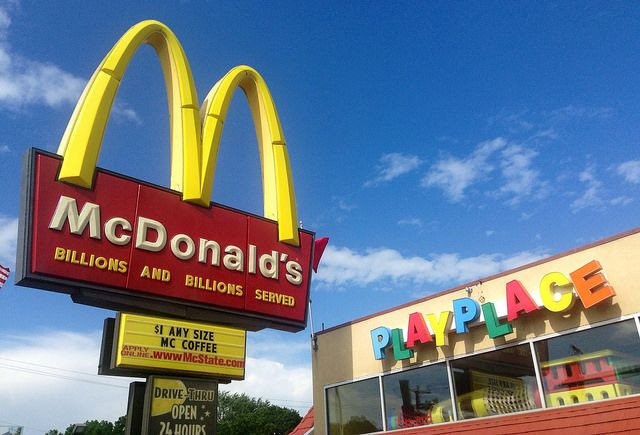Fast Food: Councilman Introduces 'Happy Meals' Bill That Will Fight Child Obesity In NYC

New York City has passed a bill to improve the nutritional value of kids’ fast food meals, possibly advancing the fight toward greater public health. The bill is expected to significantly reduce the amount of fat, calories, and sodium found in existing meals, according to a new study published in the American Journal of Preventative Medicine.
The bill was based on this study and overseen by council member Benjamin J. Kallos, who represents both the Upper East Side and Roosevelt Island. It requires that any meal marketed toward children (with the use of a toy or other promotional item) be served with a fruit, vegetable, or whole grain. The meal must also be 500 calories or less, with fewer than 35 percent of those calories coming from fat. Additionally, fewer than 10 percent of calories should come from saturated fat; fewer than 10 percent from added sugar; and less than 600 milligrams of sodium.
In order to test whether a bill like this would make an impact on public health, researchers from New York University (NYU) teamed up to analyze receipts detailing fast food purchases made at multiple Wendy’s, McDonald’s, and Burger King’s in the New York or New Jersey area from 2013 to 2014. They ended up gathering receipts from 358 adults, some of which included more than 400 kids’ meals on them.
On average, researchers found kids’ meals contained 600 calories, with 36 percent of total calories coming from fat. Researchers also found that 98 percent of the kids’ meals that were ordered did not meet the nutritional standards of the newly-proposed bill. Had the meals met the standards defined in the bill, there would have been a nine percent drop in calories, bringing the total calorie countdown to around 54 calories, the researchers said.
“While 54 calories at a given meal is a small reduction, small changes that affect a wide number of people can make a large impact,” said Dr. Brian Elbel, lead author of the study and associate professor in the department of population health at NYU, in a statement. “Passing the bill could be a step in the right direction, though no single policy can singlehandedly eliminate childhood obesity.”
The mean age of the children eating at fast food restaurants, at least in this study, was 7 years old. Of these children, 87 percent were either black or Hispanic — two populations that are considered more likely to eat fast food because of its low cost. The study suggests that while no single policy can eradicate obesity, policymakers can use legislation to effect widespread change, especially among seemingly targeted populations.
According to a 2012 Federal Trade Commission report, the fast food industry has spent nearly $714 million in 2009 on marketing to children, which appears to have already influenced the obesity rate. Obesity remains the leading cause of heart disease, stroke, and diabetes, the Centers for Disease Control and Prevention (CDC) reported, affecting one out of three children and adolescents.
Councilman Kallos is set on making sure that NYC provides healthier meals for children, namely those living in black and Hispanic communities.
“It is difficult enough for parents to give their children healthy food without the fast food industry spending hundreds of million dollars per year advertising to children, and nearly half of that on toys,” said Kallos in a press release. “If restaurants are going to incentivize children, they should incentivize them to eat healthy.”
Source: Elbel B, Mijanovich T, Cantor J, et al. New York City Healthy Happy Meals bill. American Journal of Preventative Medicine. 2015.



























